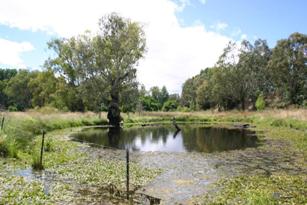
Fish friendly councils top tip 6
6. Maintain and enhance public reserves for river health
Public parks and reserves are important areas for community recreation and leisure. These areas are often of natural, cultural and economic value. These green spaces frequently have rivers or creeks flowing through them, which provide additional passive recreation opportunities such as fishing, swimming and kayaking. Maintaining and enhancing these areas provides social and economic benefits and helps keep waterways healthy.
Council can ...
- identify Council reserves that are adjacent to key fish habitat and review their management
- establish a council bush regeneration team
- work with community groups such as local recreational fishers or landcare groups to improve riparian zones
- implement a policy of planting trees and shrubs that are native to your area
- control willows and other invasive weeds
- formalise access points to reduce erosion of riverbanks
- provide litter bins.
Case Study - Riverglade Wetlands Restoration Project, Tumut Shire

Riverglade wetland is showing strong signs of recovery post-rehabilitation. Image Tumut Shire Council.
The Riverglade Wetlands, located on the outskirts of the township of Tumut in the mid-Murrumbidgee catchment, was traditionally an important meeting place for the Wiradjuri people en route to the Snowy Mountains. Decades of neglect and inappropriate use of the wetlands such as the illegal dumping of rubbish, uncontrolled grazing by stock and unregulated stormwater flow resulted in a loss and degradation of native vegetation, infestations with weeds including willows, ossage orange and paspalum grass, pugging of the foreshores and the river bank, a lack of natural flooding cycles, sedimentation and poor water quality. With the support of the local community Tumut Shire Council have restored the wetland and integrated the natural and cultural values of this iconic site. More ...
See also
- 1. Find out about your local fish populations
- 2. Help protect key fish habitat in Council planning processes
- 3. Ensure council infrastructure is fish friendly
- 4. Treat stormwater prior to discharge
- 5. Protect and manage buffer areas
- 7. Collaborate with your neighbouring councils
- 8. Support local groups working on fish friendly projects (for example: Rivercare, Landcare, Indigenous groups, Fishing clubs)
- 9. Educate your local community about fish and river health
- 10. Promote your fish friendly work to the wider community

